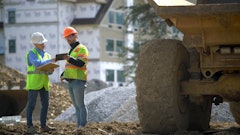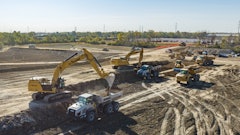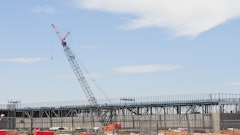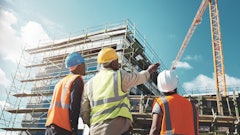Over the past several months, many regions have seen a moderation in construction materials pricing. This has been a welcome relief after the extreme price increases seen for select commodities starting in 2004 and extending through much of 2006.
Unfortunately, it appears this relief will be short lived. At the Associated General Contractors of America (AGC) annual convention, Kenneth Simonson, chief economist, forecast a 6% to 8% rise in materials costs by the end of 2007. He cited greater volatility in petroleum, concrete and metal products as a primary factor.
Prices for these commodities are already starting to jump. As of February, the Bureau of Labor Statistics producer price index was already indicating a 7% increase in diesel fuel costs and a 14% increase in the cost of liquid asphalt.
Steel has seen significant price spikes. In mid-March, one major steel supplier announced a $50/ton net transaction price increase on all structural steel, bringing its total increase to $100/ton (+15%) since January 1 (AGC Data Digest, March 12-16, 2007). This is on top of an earlier announcement of a $55/ton increase by mills producing reinforcing steel.
"These steel increases are roughly as extreme as in early 2004, the year that kicked off a three-year binge of materials cost escalation," Simonson states. "This year, as in 2004, price hikes for other materials, such as diesel fuel and asphalt, are going to hit construction especially hard."
The potential for instability in oil-producing regions continues to wreak havoc on diesel fuel and asphalt product costs. As of mid-March, diesel prices had increased for the sixth straight week, recording a six-month high of $2.68/gal. This represents a $.27 (11%) increase since January.
In addition to the affect on equipment operating costs, the higher price of diesel has had a negative impact on materials prices. "Contractors report that fuel surcharges are more common than in the past," notes Simonson. "Because when transportation networks are stretched tight, fuel cost increases are likely to be passed along to customers."
The rising cost of petroleum products will further boost asphalt prices, as well. The cost of asphalt has more than doubled over the past year. And while currently averaging around $350 to $400/ton, political factors could propel prices well beyond the $400 mark.
On a positive note, it appears cement pricing may prove more stable in 2007. Based on the most recent forecast from the Portland Cement Association, cement consumption is projected to decline 1.5% over 2006 levels. This can be attributed to the continuing downward spiral in residential construction activity. While prices may start to creep up again by mid-year, higher available cement volumes should help to moderate prices compared to 2006.
Overall, it appears materials and fuel costs will continue to erode already tight margins on many construction projects. Weathering the storm of price increases will ultimately depend on how well you budget your total project costs, and how you control those costs throughout the construction process.


























